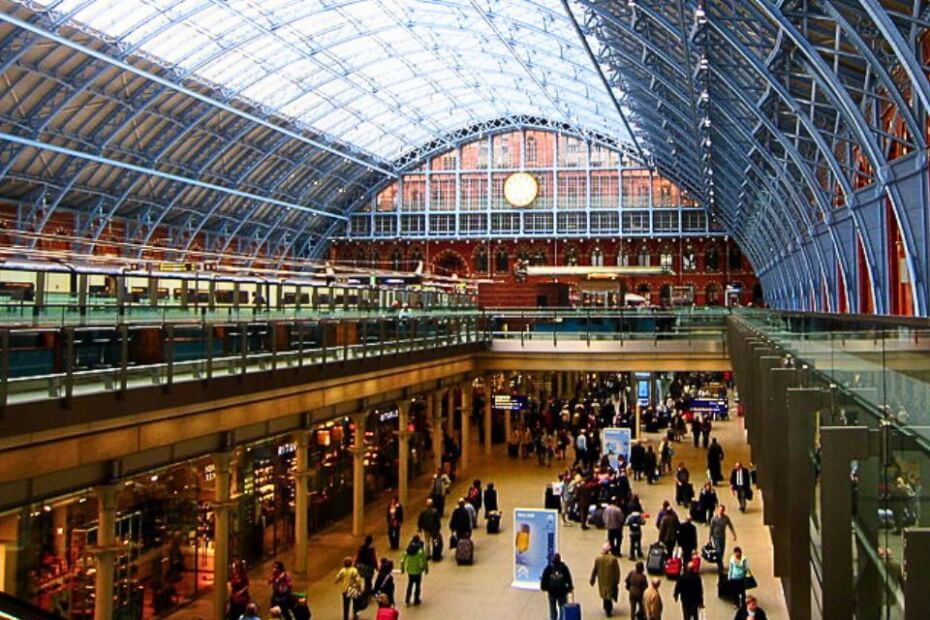
Local government officials called on the United Kingdom (UK) government to address the possible issues caused by post-Brexit border checks.
London Mayor Sadiq Khan warned that the new biometric border checks threaten to create “chaos” at the city’s St. Pancras station.
Local officials in Kent also urged the government to act against possible 14-hour delays due to the Entry/Exit System (EES) rollout.
The EES is the European Union’s (EU’s) new automated biometric border check system set to launch in October 2024.
The new system records non-EU citizens’ entry and exit via facial scans or fingerprints instead of the traditional passport stamping.
The UK Parliament’s European Scrutiny Committee has gathered several evidence reports indicating the EES will disrupt UK-EU travel.
Limited train services and long delays unacceptable, says London’s mayor
In a press release, Khan highlighted that Eurostar is vital to London’s and the UK’s economic success.
He said London’s St. Pancras station is “a gateway for huge numbers of tourists and businesspeople in the country.”
The international high-speed rail service carries up to 900 passengers in each of the 14 trains it runs daily from Paris to London.
“As it stands, these new post-Brexit checks will cause chaos at St Pancras,” Khan stated.
He added, “With London’s economy roaring back after the pandemic, this sends a terrible signal to both tourists and businesses from around the world.”
Khan expressed that the looming travel disruption is “directly a result of Brexit,” which the UK government must address.
He insisted ministers offer urgent support to High Speed 1 (HS1) and Eurostar to resolve these issues as a “matter of urgency.”
“Cuts to services and longer delays simply isn’t an option,” Khan stressed.
Eurostar may limit passenger numbers due to post-Brexit border checks
Evidence submitted by HS1 to the Scrutiny Committee predicted that Eurostar may need to limit passenger numbers.
HS1 owns and operates the line and stations between London and the Channel Tunnel.
Due to having only 24 EES kiosks instead of the required 49, passengers will likely face long queues, particularly during morning peak hours.
Additionally, registering a non-EU traveler at the border is expected to add at least two minutes of travel time per passenger.
There is currently no option to pre-register passengers’ biometric data, such as fingerprints and facial scans, online in advance.
HS1 added that space restrictions at St. Pancras station would make the queueing process “convoluted and staggered.”
Installing additional EES kiosks at St Pancras would cost £25,000 each with a £2 million yearly maintenance expense.
Eurostar would bear the costs if more EES kiosks were to be installed.
UK and French governments working together to address EES issues
The European Commission oversees the implementation of its new biometric border check system.
The British government is “working closely with the EU” to reduce any impact the EES would have on shared borders.
The Home Office Secretary had met with the French Interior Minister to discuss the EES implementation, reported The Standard.
“We are in close contact with the travel industry and port authorities to ensure they are prepared to minimize the risk of delays,” the UK government spokesperson said.
Kent leaders rallying for support as EES implementation looms
Local leaders in Kent have called upon the government to support Kent in managing post-Brexit border checks.
These leaders are Roger Gough, Leader of Kent County Council, Andrew Osborne, Head of Economic Development at Ashford Borough Council, and Deirdre Wells OBE, Chief Executive of Visit Kent.
“As the gateway to Europe, if Kent is blocked, supply chains will also be fundamentally impacted,” the local leaders said in a statement. “Therefore, the implementation of EES checks is not just a Kent problem – but a national problem.”
According to reports submitted to the European Scrutiny Committee, the port and ferry portions will be severely impacted by EES.
Travelers may face queues of up to 14 hours at the Port of Dover in a “reasonable worst-case” scenario.
Such delays have “serious consequences for local communities on the route to the Port of Dover and Eurotunnel.”
Wells stressed that long traffic queues to Dover and Folkestone impact travelers, communities, and businesses countywide.
Gough urged the government to provide Kent with increased funding for traffic management and more facilities for holding EU-bound freight.
He also called for remote biometric registration to reduce the prospect of delays at the border points.
On the other hand, Oveden suggested resuming operations at international rail services at both Ashford and Ebbsfleet.
“The stations provide a great opportunity to increase border capacity outside of the constrained St Pancras International Station,” he shared.
Eurostar suspended these services in 2020. It cited the introduction of the EES system as a potential barrier to their reopening.
New border check system to be beneficial in the long run
The UK’s European Scrutiny Committee has been gathering evidence reports on the impact of post-Brexit border checks.
Many parties are concerned that the EES system will adversely impact local citizens near the borders, businesses, and travel.
However, despite the challenges, Eurostar and most airline companies see the EES as beneficial in the long term.

